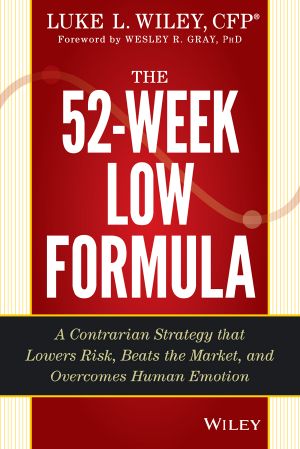The 52-Week Low Formula

- Authors
- Wiley, Luke L.
- Publisher
- John Wiley & Sons
- Date
- 2014-04-21T00:00:00+00:00
- Size
- 1.92 MB
- Lang
- en
The 52-Week Low Formula is all about looking at companies to invest in and asking the following questions: Do they have a durable competitive advantage? Are the kind of company that is hard to compete with either because they have cornered a difficult market or because competing with them would require an unreasonably high investment by others?What is the purchase value of the company? If someone were to come in and buy everything, would they inherit debt greater than revenue? And, if you were to buy the company, would it be worth it? Would you make more money that you would simply investing in 10-year Treasury bonds?What's the Return on Invested Capital of the company? Is it using its money well to create returns or is it taking on bad investments that don't pay off?Can it pay its debt off quickly? There are a lot of companies out there that are making a lot of money, but can they, should all revenue activities cease and all debt come due, remain in the black?Finally, is it trading lower than it has in a year?
The 52-Week Low formula is based on the idea that even the best companies go through a skid, a downturn in stock value. If a company answers the above four questions well, you want to know if it's going through a rough patch. This is the filter that requires discipline because common investors often overlook good companies when they are on the skids. But good companies always find a way to come back. That's what makes them good companies, what makes them the right companies to invest in, what makes investing in them worthwhile.
In this book, readers will: examine the principles that go into selecting the 25 companies Wiley invests in every six months - what he looks for, what requirements he has and how those came to be.examine case studies of companies that have proven time and again that they can overcome obstacles and provide consistent growth for the long-term.show the results of a disciplined approach to investing over an emotional one and the mistakes investors make when they invest out of fear instead of a solid strategic approach.cover the evolution of the 52-Week Low, how the philosophy developed and became strategy and pitfalls he's experienced along the way.